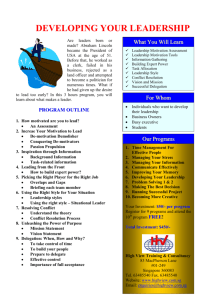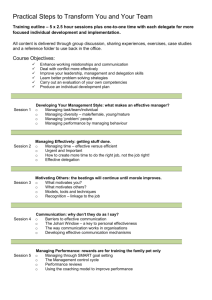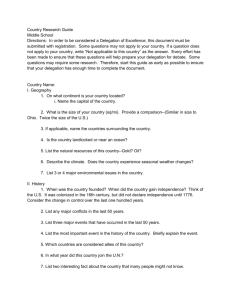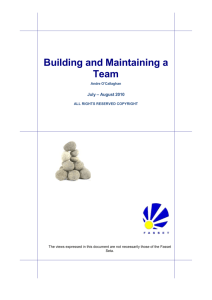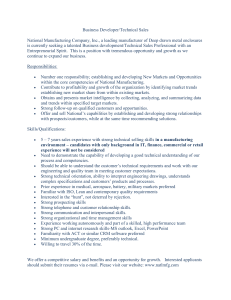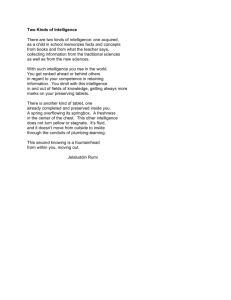LS 116 104
advertisement
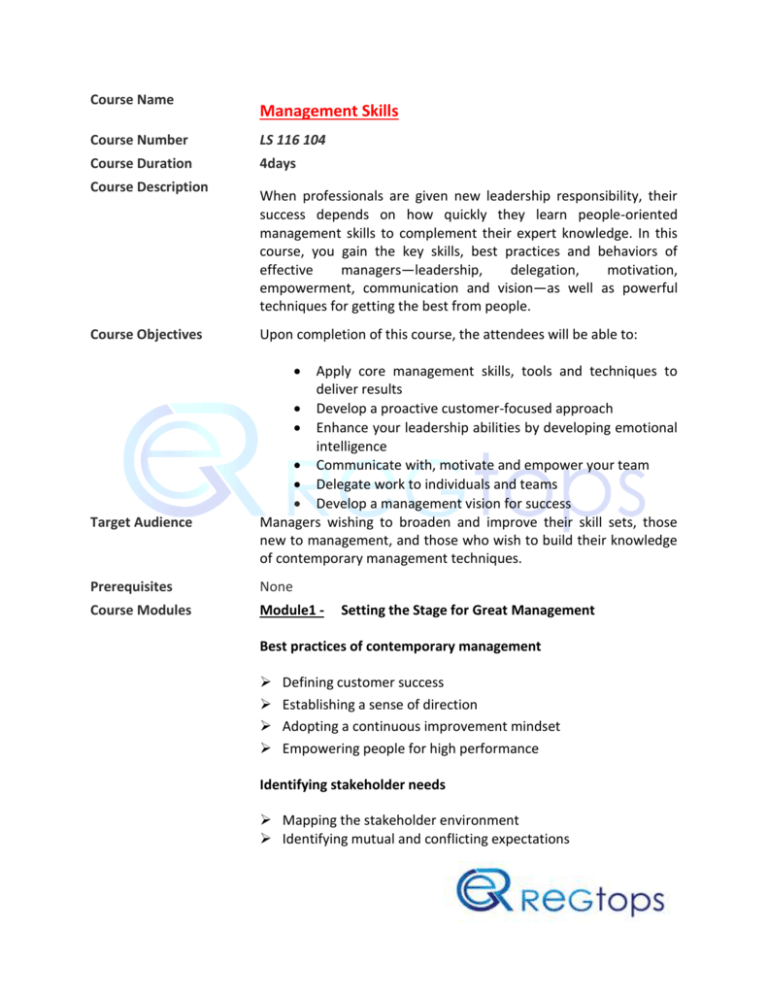
Course Name Management Skills Course Number LS 116 104 Course Duration 4days Course Description Course Objectives When professionals are given new leadership responsibility, their success depends on how quickly they learn people-oriented management skills to complement their expert knowledge. In this course, you gain the key skills, best practices and behaviors of effective managers—leadership, delegation, motivation, empowerment, communication and vision—as well as powerful techniques for getting the best from people. Upon completion of this course, the attendees will be able to: Target Audience Apply core management skills, tools and techniques to deliver results Develop a proactive customer-focused approach Enhance your leadership abilities by developing emotional intelligence Communicate with, motivate and empower your team Delegate work to individuals and teams Develop a management vision for success Managers wishing to broaden and improve their skill sets, those new to management, and those who wish to build their knowledge of contemporary management techniques. Prerequisites None Course Modules Module1 - Setting the Stage for Great Management Best practices of contemporary management Defining customer success Establishing a sense of direction Adopting a continuous improvement mindset Empowering people for high performance Identifying stakeholder needs Mapping the stakeholder environment Identifying mutual and conflicting expectations Establishing success criteria Module2 - Applying a Model for Management Excellence Importance of management identity Making the transition from expert to manager How managing, leading and administering relate Managing people more expert than you What kind of manager do you want to be? Developing a management role model Adapting the model to your managerial situation Ten things all successful managers do Module3 - Managing with Emotional Intelligence Five characteristics of the effective manager Knowing yourself: developing three key intrapersonal skills Working with others: applying integral interpersonal skills Applying emotional intelligence day to day Responding appropriately in key situations Using emotional intelligence to lead by example Module4 - Motivating Individuals for Performance Recognizing key motivators Avoiding the top de-motivators Leveraging motivators that work for everyone Maximizing your impact on motivation Matching motivators to individual expectations Identifying people's basic needs Recognizing and responding to generational differences Developing and applying a motivational strategy Module5 - The Art of Delegation Fostering commitment through effective delegation Creating a spirit of partnership Establishing a common understanding of success Applying a proven step-by-step process for delegation Getting the job done: task and process Determining individual strengths Building on natural talents Collaborating for successful outcomes Module6 - Achieving Goals Through People Agreeing on clear expectations Setting group norms for yourself and your team How your expectations influence others Establishing shared purpose and mutual accountability Amplifying individual contributions through synergistic teamwork Creating an environment conducive to collaboration Practical and productive team-building techniques Helping your team work more productively Enhancing communication through a three-layer model The importance of team dynamics and diversity Module8 - A Proactive Approach to Managing Performance Enabling and supporting excellent performance Developing others to achieve their potential Focusing performance through effective measures Utilizing continuous appraisal techniques Integrating coaching and appraisal to build performance Effectively managing workplace disruption Intervening when performance goes off track Reinforcing and redirecting behaviors with constructive feedback Module9 - The Power of Vision Starting with the end in mind Creating momentum and flexibility in your team Keeping the future in focus Crafting your personal vision of management Taking action to implement your personal vision Challenging organizational constraints
